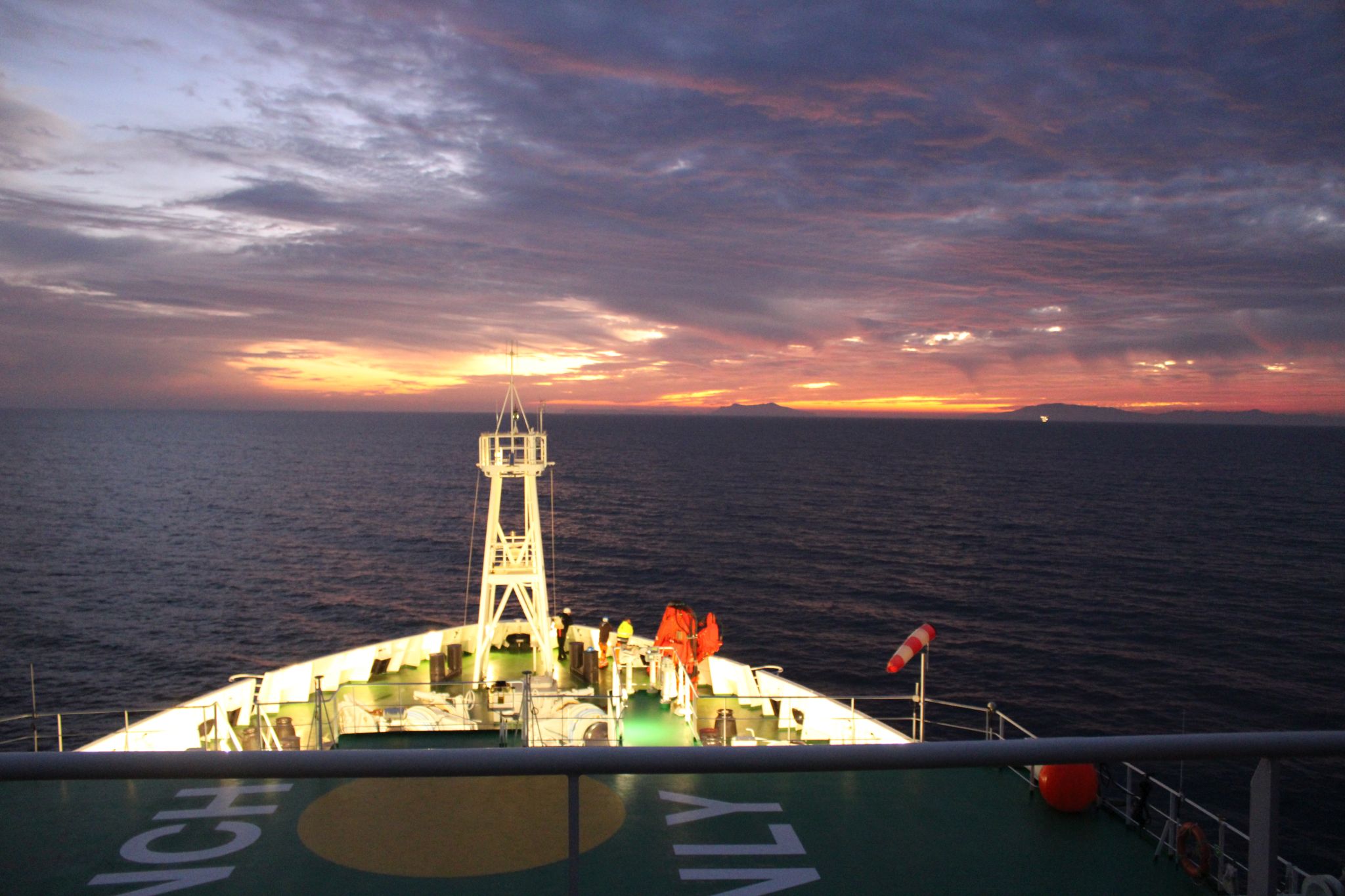All research cruises are a lot of work. This one, for many of us, is especially taxing, with CTD casts and sampling of surface water at all hours of the day and night. We make good use of the time, money, and energy expended to do good science—but we also like to let our more […]
Tuning in to phytoplankton rhythms
We have discussed phytoplankton quite a bit on this blog, from their part in marine snow creation to their potential reactions to ocean alkalinity enhancement. Their importance to the ocean—and the planet—is hard to overstate, and there are many aspects of their lives (and deaths) to explore. While our schedules have been chaotic this cruise, […]
Can the ocean help us fight climate change?
The ocean has always been one of Earth’s best defences in the fight against anthropogenic climate change. It absorbs about 25% of the carbon dioxide (CO₂) we emit, acting as a giant sponge for greenhouse gases. This carbon sink comes at a cost—this extra CO2 is making the ocean more acidic, and ocean acidification limits […]
Uncovering the secrets of marine snow
Carbon’s journey to the deep Just like their larger cousins, the terrestrial plants, phytoplankton convert atmospheric carbon dioxide (CO2) into organic carbon. If their tiny carbon-based bodies sink from the surface ocean to the deep sea and sediments, the CO2 is then removed from the atmosphere for hundreds to thousands of years. The remains of […]
A little radium goes a long way
For many people, radium brings to mind Marie Curie and her historic discoveries and the dangers they posed. But radium is found all around—in rocks, sediments, and water— in such small amounts it cannot harm us. Several isotopes of radium exist naturally in the environment. They decay at different rates, and scientists like Cátia Ehlert […]
SONNE expedition SO295: tracing environmental impacts of deep-sea mining / Auf den Spuren der Umweltauswirkungen von Tiefseebergbau
Deutsche Version siehe unten Felix Janssen, HGF-MPG bridge group for Deep Sea Ecology and Technology at the Max Planck Institute in Bremen and the Alfred Wegener Institute in Bremerhaven, Germany Already some two weeks ago we arrived with research vessel SONNE in the first working area 11° north of the equator and approx. 1500 kilometer […]
Team Geodesy
Today, we, the second smallest team of expedition M178, would like to introduce our mission on this cruise. ‘Team Geodesy’ is Morelia, Florian, and Christian and we are here to service a seafloor geodetic network that measures deformation of the submarine part of Etna’s mobile flank. On land, ground deformation is usually done using GNSS […]
Gambino first experience diary
Ship’s log, star date 34.654 (20 November 2021 if you are reading from the Earth). I’m approaching the R/V Meteor for the first research cruise of my life. I’m so excited! (For those of you who don’t have enough time to go through the text… It was great!) The navigation started in the best way […]
Nachts auf dem Forschungsschiff
Ich bin Emma, Masterstudentin an der Uni Bremen, Hiwi am Alfred-Wegener-Institut, und eine der wenigen „Ersties“ an Bord – M178 HazELNUT ist meine erste Fahrt auf einem Forschungsschiff. Meine Erfahrungen an Bord und meine spezielle Aufgabe im Team möchte ich euch ein bisschen näher beschreiben. Natürlich wollte ich nicht unvorbereitet in die Ausfahrt starten und […]
Multibeam System in Betrieb genommen
Gestern wurde das Multibeam System in Betrieb genommen und der Sea Acceptance Test zur Kalibrierung des Systems gestartet. Währenddessen konnten wir den einen oder anderen Blick auf die Liparischen Inseln werfen, eine Inselgruppe im Tyrrhenischen Meer nördlich von Sizilien. Zu dieser Inselgruppe zählt unteranderem der Vulkan Stromboli, welcher in guter Sichtweite zu unserem Schiff lag […]
